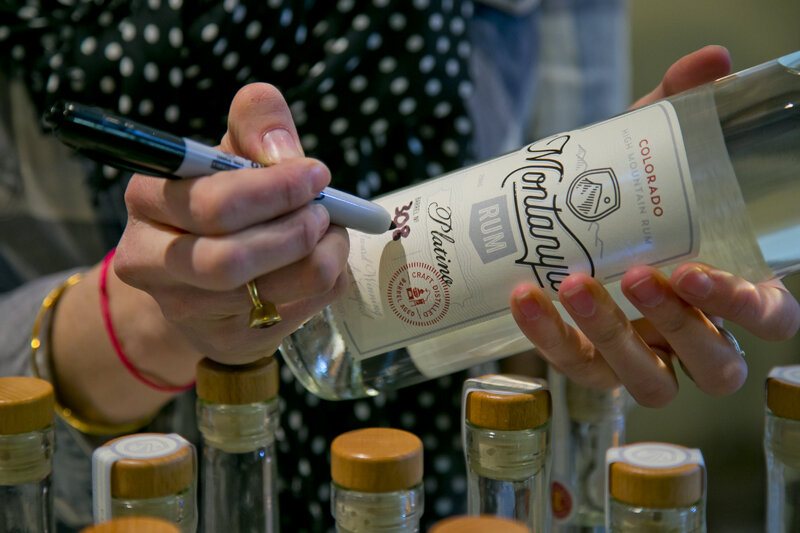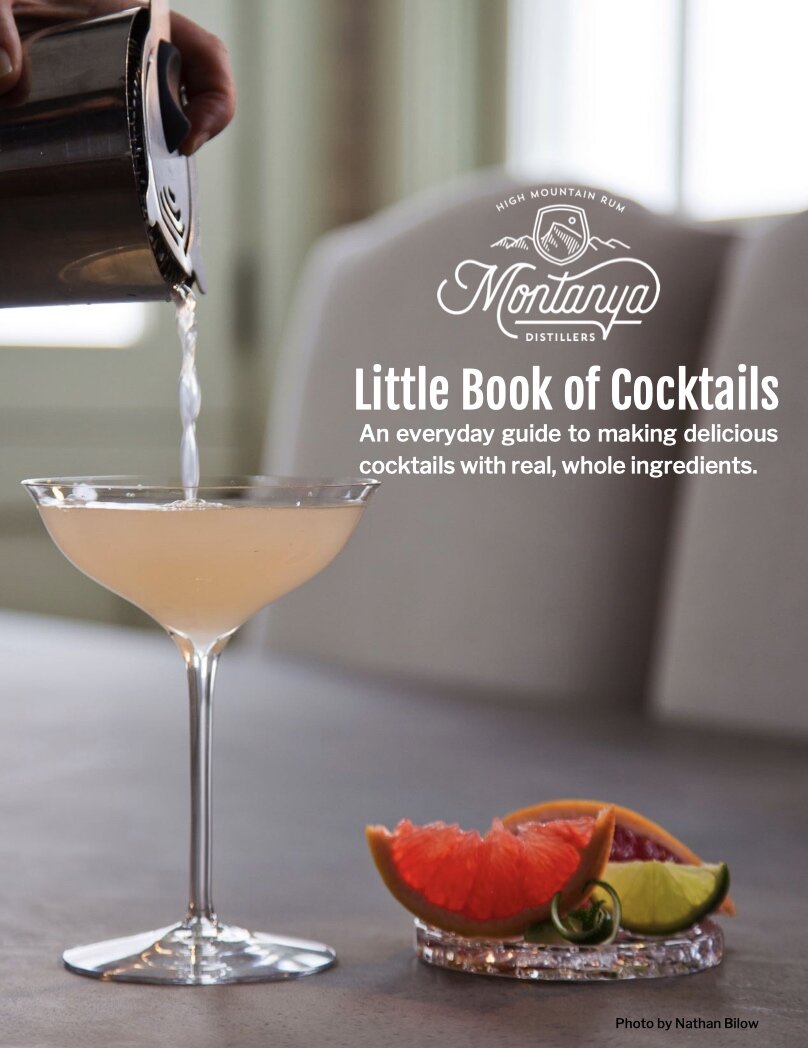Setting the Record Straight on Gluten in Spirits
Our founder and owner Karen Hoskin was first drawn to rum because she could drink it without feeling the side effects she experienced from alcohols like beer. She didn’t know it at the time, but she would later be diagnosed with celiac disease, which causes an intolerance of gluten. It’s one of the reasons she ultimately started a rum distillery instead of a brewery (which she considered in 1992).
Over the years, Karen has learned a lot about the hidden sources of gluten in spirits. She’s also observed a general (and often very passionate) misunderstanding of the subject among spirit makers, bartenders and consumers. Many people assume that all rums and spirits are gluten-free, when that’s not actually the case. We decided it was time to set the record straight on gluten and alcohol:
The Biggest Misconception About Alcohol and Gluten
Even spirits that are made from wheat will come off the still gluten-free. Gluten can, however, be added back in after distillation.
Many people understand that when you distill a sprit, it becomes free of gluten. This is absolutely true. Every spirit coming out of a still is gluten-free—even if it’s made from barley, wheat or rye. However, that doesn’t mean the same can be said for the final product in the bottle and on the shelf. In fact, unless you consume your spirits right straight off the spout of a still, it’s reasonable for a celiac to be skeptical.
During the post-distillation phase, ingredients may be added to the rum or spirit that contain gluten and are therefore problematic for people with celiac disease or who are highly sensitive to gluten.
Hidden Sources of Gluten in Spirits
One of the first places to look for gluten is in colorings and flavorings. Natural flavors may contain gluten in the form of grains extracts, which are common to products like spiced and flavored rums. It’s also possible for caramel coloring to be derived from barley or wheat (though it’s worth noting this isn’t always the case—caramel coloring can have other sources, too, like honey).
What makes this difficult is that a maker might not report the ingredients within the ingredient—if a bottle does list caramel coloring, it very likely won’t list the sources of the caramel coloring. To complicate matters further, a spirit maker isn’t required to report ingredients that make up less than 2% of the bottle. (This is not a practice we follow at Montanya—we report every ingredient, including the use of honey in some of our rums before 2019, even though it makes up less than .04% of the rum. We have discontinued this practice. While it’s not a gluten-containing ingredient, we believe consumers have the right to know what they’re drinking.)
Another source of gluten could be post-distillation add backs, which means that distillers add a small amount of mash from the fermentation process into the barrel or bottle. This process brings up some of the flavors of the original grains (this is more typical of whiskeys, ryes and bourbons) that can get minimized during distillation. This is mostly rare especially among purist brands, and not allowed for American ‘straight’ and American “bottled-in-bond” designations. A whisky labeled “straight bourbon” or “straight rye” will have no additives (other than water), not even caramel. (Just for clarity, we are not confusing backset, tails with mash. We are speaking only of non-distilled additives. Whiskey can have 2.5% added anything as long as it doesn’t significantly alter the flavor, which mash does not.)
Some cooperages (barrelmakers) put a small amount of wheat paste in the croze (the groove carved in the barrel staves to connect the head) to seal the barrel. Not all cooperages use a wheat-based paste, but some do and it can take quite a bit of research to discover which ones. This may explain why celiacs sometimes react to wines, spirits and even gluten free aged beers that have no grain origin at all.
It’s also possible for a spirit without gluten to be processed in the same facility as a spirit that will eventually contain gluten. Cross-contamination can occur with alcoholic beverages just as it does with food.
At Montanya, we include as much information as we can on the label—including the exact barrel the rum came from, which we wrote by hand during the early days—so our customers know what they’re consuming. Our spirits carry a “gluten free” symbol, which isn’t at all unreasonable even though rum is gluten free directly off the still.
What to Look For When You’re Looking for Gluten-Free Spirits
Lack of reporting and underreporting make it difficult to rely solely on reading labels. That said, there are a couple of key pieces of information to understand:
First, the Alcohol and Tobacco Tax and Trade Bureau (TTB), which regulates spirits, requires third-party testing in order for an alcohol to claim that it is gluten-free. In addition, spirits that are made from gluten-containing ingredients (such as rye) cannot be labeled as gluten-free even if they are. They must instead be labeled as “processed to remove gluten.”
Generally speaking, brands that fall into the latter category are safe for consumption by people with celiac disease or a gluten sensitivity. Celiac.com does suggest, however, that some people still experience a sensitivity to these spirits. (We believe that it may be difficult to know if these reactions are a result of the original grain or chemical additives used after distilling. More on this below.)
You can also look for any added flavorings, colors or caramels—while it might not be immediately clear which ones contain gluten, it can be a place to start in terms of eliminating certain brands. Spiced and flavored rums are more likely to have these types of additives.
Beyond that, many resources for people with celiac disease recommend contacting the manufacturer to establish its gluten-free status. Celiac.com also has a list of gluten-free alcohol and spirits on its website. It provides a good place to start.
Other Additives that Can Be Problematic
Gluten isn’t the only ingredient that can cause an adverse reaction. Some brands use chemical additives or preservatives in their products. Glycerin, for example, creates a mouth-feel and texture in a spirit. Propylene glycol is a common food and beverage additive sometimes found in spirits—it made headlines in 2014 when a flavored whiskey brand sent bottles of its American formulation to Scandinavia, where lower quantities of the chemical are allowed.
While additives like these are deemed safe for consumption by the Food and Drug Administration, we think it’s worth noting that everyone reacts differently to these types of chemicals. In 2018, for example, the American Contact Dermatitis Society named propylene glycol as its allergen of the year—a contest designed to highlight allergens that are commonly used and under-recognized.
Again, it can be difficult to trace these ingredients when they’re not shared on the label. One approach that we like to use is to look for the rums or spirits that do label clearly, seek third-party certifications and practice transparency as a general rule.
All Montanya Rums are Gluten-Free
Our sugar cane is Non-GMO and grown by family farmers in Louisiana, many of whom we know personally. Meet Gene Adolph.
We make the majority of our rums with only four main ingredients: Colorado mountain water, raw unrefined sugar cane (the whole plant minus water and fibrous solids), yeast and in the past, a tiny touch of Colorado honey to bring out the natural flavors (less than .04% of every bottle). We do not use honey in any rums currently. Every ingredient is traceable, and we never add artificial flavorings, colors or additives.
We clearly label our rum to include as much information as we can fit, including the following: the company is B Corp certified, the rum is certified kosher, and it’s certified gluten free. You will never see us make a rum that our founder can’t enjoy!
You Might Also Like
Put the Happy in Happy Hour
Download our free eBook, an everyday guide to making delicious cocktails with real, whole ingredients.




